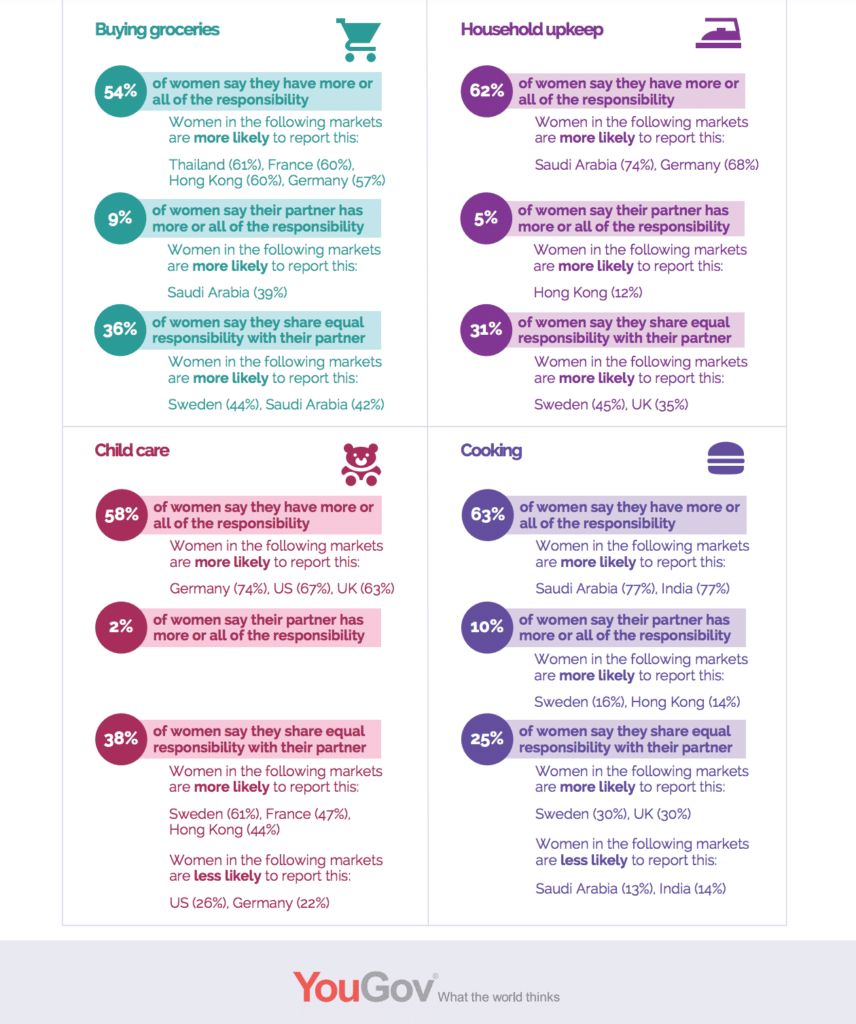More women around the world are making money yet we still fess up to doing the bulk of unpaid domestic household duties like cleaning and cooking.
Honestly what gives? Is this some kind of oddity in our biological makeup where women can’t seem to let go of our nesting instincts even when we earn more money than a male partner? Or do we really like doing it, even when we have less time for it?
A new international study by YouGov Omnibus found that unpaid tasks like buying groceries predominately fall upon women, though cultural differences do play a factor.
Below is a screen shot from the report on how responsibility is shared in households across the world, based on the percent of women who live with a partner.

This all comes as the same study found that women are making more money than ever before.
We now have more than one in five women who live with a partner saying they either earn more than their partner or contribute the full amount to their household’s total income.
The study of over 14,000 people, spans three continental regions and nine markets, including the United States, United Kingdom, France, Germany, Sweden, Hong Kong, Thailand, India, and Saudi Arabia.
Where’s Australia? Sadly not in it, but according to Roy Morgan research an estimated 33 per cent of Australian women who live with a partner and have kids, say they are the main breadwinner, compared to about 86 per cent of men.
Overall, about same Roy Morgan research found that about half of all women, including singles and people without kids, claim to be the main breadwinner.
This means Australian women, who are now participating in record numbers in the paid workforce, are potentially doing better than many of our international neighbours when it comes to making money.
But when we look at unpaid domestic chores, the 2016 Census shows the typical Australian woman spends between five and 14 hours a week doing unpaid domestic housework. For the typical Australian man it’s less than five hours a week, suggesting women still assume the lions’ share of the housework.
By contrast, the YouGov Omnibus study found that less than a fifth of women – 17 per cent to be exact – around the world report that they contribute as much as their partners do.
More than half of the women who live with their partner say they either earn more or contribute the full amount of their earnings to their household’s total income.
Interestingly another study conducted by ING found that sharing money in relationships can actually boost your personal happiness.
The research found that nearly two-in-three – 64 per cent – of Australians in a relationship who report being happy say they share their finances.
We reckon that result on money happiness would be a whole lot higher if it also factored in those unpaid domestic duties… don’t you?












